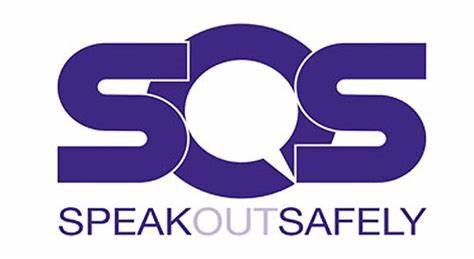Advice and Support
We know that students need dedicated focus and attention both inside and outside the classroom.
In addition to tutor group and Progress Lead support, students can also rely on a strong Pastoral and Special Education Needs and Disabilities team.
Visit our Special Educational Needs and Disabilities page.
Introduction
Please use the links below for some useful guidance.
Information for Children, Young People and their Families in South Gloucestershire
ADHD
ADHD Foundation ADHD together Living with ADHD
Anxiety Related Disorders
Autism/Asperger Syndrome
Ambitious about Autism National Autistic Society
Bullying - How can we tackle it...
What is bullying?
- A deliberate means of hurting, humiliating or harming another person.
- It goes on regularly or over a long period of time.
- Involves someone, or a group of people, who are stronger than the victim.
It is not:
- A one-off fight or an argument.
- Someone being a bit nasty occasionally.
Bullying could be about anything but bullies will pick on a perceived ‘weakness’. They might target an aspect of appearance, personality, personal life or intelligence. Equally if could be aimed at race, religion or sexuality. It is importance to stress that absolutely none of this is acceptable. Top tips
- Teach your child to be respectful of others and model this.
- When you see bullying happening on TV or in real life, talk about it and say it’s wrong. Discuss how the victim might feel. This helps your child empathise with others, thus stopping them from bullying and also helping others who might be bullied.
- Ask them about what they’ve learnt in school and talk about bullying.
- Discuss all types of bullying; spread rumours, name-calling, leaving someone out of an activity, nasty comments online.
How do you know if your child is being bullied?
- Behaviour changes.
- More withdrawn.
- Doesn’t want to go to school and may fake illness.
- Physical bruises or signs of harm.
- Eating habits change.
What to do if your child is being bullied?
- Find out the facts.
- Praise them for telling you and tell them you will solve it together.
- Remain calm and let your child talk to you while you listen carefully.
- Make them feel loved and protected as they will be feeling anxious.
- Ask your child what they would like to do next and make sure you support them, whatever their decision.
Then:
- Note down details and keep a diary if you are unsure whether it is bullying.
- Keep any emails, text messages, comments, tweets, chats etc.
- Let the school know (Tutor, Head of Year or Director of Studies) and arrange a meeting.
- Make a plan together and agree a timeline for actions.
- Pass all details onto the school.
Tips for teenagers
- Avoid the bully wherever possible.
- Stay in a group.
- Tell an adult you trust – it’s better to share it and get some help in sorting things out.
- Try and stay calm as the bullies may enjoy winding you up.
- Remind yourself that you have done nothing to deserve it.
- You could try and ignore it and go somewhere else.
- Try calm statements like:
- “I’m sorry you feel that way cos I actually like you” or “I don’t understand why you are doing this. I’d like it to stop”.
- “Please leave me alone now”.
- Or annoy them calmly by saying very banal statements:
- “Whatever”
- “If you say so”
- “Yes, I am gay, so what?”
- Maybe you’re right”.
Don’t try this indefinitely though! Why do people bully?
- To fit in or be cool.
- They dislike someone.
- To feel powerful or respected.
- To get what they want.
- They are unhappy or have problems at home.
- They are being bullied as well.
Where can you find out more?
www.childline.org.uk, www.bullying.co.uk, www.kidscape.org.uk. REMEMBER: Happy, confident and kind people do not need to bully. #WAbetterthanbullying
Children starting work
NSPCC - age limits, working hours & pay
Concerned about a child?
South Glocestershire Safeguarding
Dyslexia
British Dyslexia Association & Dyslexia Action
Dyscalculia
Dyspraxia
Dyspraxia Foundation & Movement matters
Guidance booklet produced by CAMHS
Further information for Children, Young People and their Families in South Gloucestershire: South Glos. CAMHS resource list - where to get help
Keeping Children Safe in Education
Keeping Children Safe in Education
Life Coaching
Life Coach Directory was set-up in order to raise awareness of coaching and to enable visitors to find the most suitable qualified coach for their needs. Coaching is the process of guiding a person from where they are to where they want to be, and can address a range of areas from career advice to family coaching.
Safer Internet
NSPCC Keeping Children Safe OnlineSensory Needs (Hearing/Vision)
Action Deafness & Royal Society for Blind Children
SEN parent support
Parent Partnership & SEND and You
Supporting your child during difficult times
Kooth has produced this Guidance Booklet & FAQs
Young Carers at Winterbourne
Information and support for young carers at Winterbourne Academy




